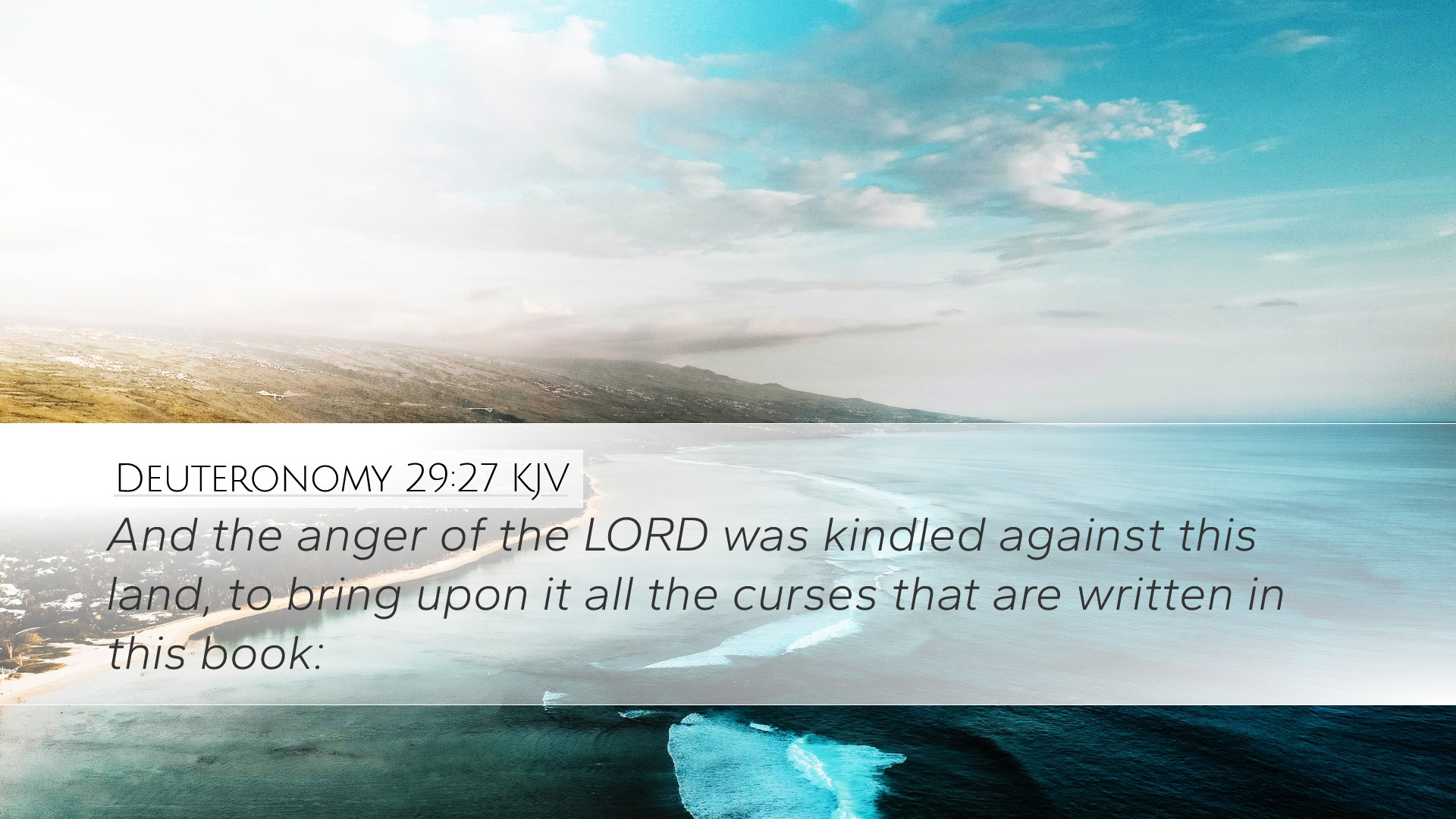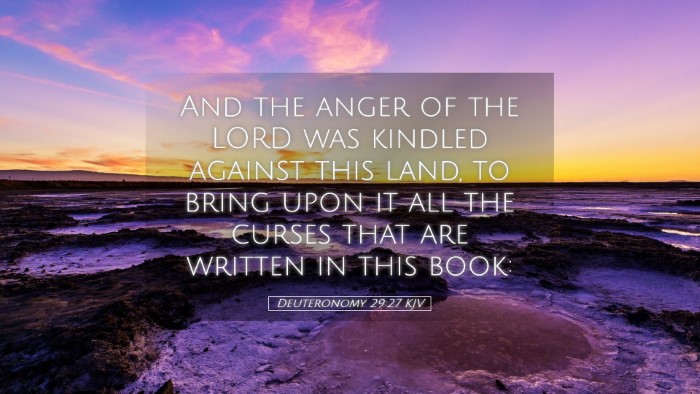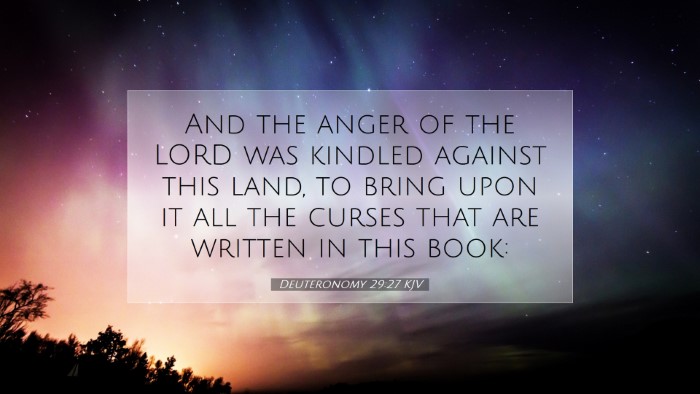Commentary on Deuteronomy 29:27
Verse Text: "And the anger of the LORD was kindled against this land, to bring upon it all the curses that are written in this book."
Introduction
This verse falls within a critical section of Deuteronomy, where Moses lays before the Israelites the covenant stipulations and the consequences of either fidelity or infidelity to God's commands. The gravity of divine judgment and the solemnity of national responsibility permeate this passage.
Contextual Analysis
The broader context of this chapter encompasses the renewal of the covenant between God and Israel, which is a theme central to the Deuteronomic literature. In this section, Moses recalls the covenant's blessings and cursings, emphasizing the certainty of divine retribution for disobedience.
Moses' Role as a Mediator
Matthew Henry notes the pivotal role Moses serves as a mediator, delivering God’s message about the repercussions of the Israelites' actions. Henry emphasizes that Moses conveys both instruction and warning to the people — urging them to understand the serious implications of their conduct.
The Anger of the Lord
The phrase "And the anger of the LORD was kindled" signals a crucial theological principle: God's righteousness cannot tolerate sin. Albert Barnes elaborates on this by stating that God's anger is not capricious but rooted in His holiness, calling attention to the severe nature of divine judgment upon persistent rebellion.
Consequences of sin
Herein lies a significant lesson for modern readers: the manifestations of God's displeasure are often reflected in the consequences faced by the community. As indicated in previous chapters, such calamities serve not just as punishment but as warnings to draw the people back to obedience.
The Curses of the Covenant
Adam Clarke emphasizes the critical nature of the curses laid out in the covenant. These curses function as both a deterrent and a disclosure of God’s justice. Clarke elucidates that the specificity and gravity of these crimes highlight the seriousness of Israel's apostasy. The "curses that are written in this book" signal not merely punishment, but a stern reminder of the covenant's reciprocal nature — blessings for obedience and curses for disobedience.
Historical Context of the Curses
The historical backdrop surrounding these verses signifies that Israel's actions have direct implications not just for themselves, but for the land of Canaan as a whole. Matthew Henry notes that the land, seen as the gift of God, can equally become a witness against them if they turn away from the covenant. The duality of the land being both a blessing and a curse depending on Israel's fidelity underscores the seriousness of their pact with God.
Theological Implications
In this passage, we see a profound articulation of God’s justice and the repercussions of collective sin. Albert Barnes articulates that the anger of the Lord and the consequent curses are not arbitrary; rather, they arise from both divine holiness and divine justice. The theology embedded in this realization calls for reverence and adherence to divine commands.
Modern Applications
The implications of this verse resonate deeply within current ecclesiological contexts. Adam Clarke suggests that while the specific covenants may pertain to ancient Israel, the underlying principles of obedience and divine justice remain relevant. This serves as an exhortation for contemporary believers to uphold faithfulness to God's word, recognizing the communal aspect of covenantal blessings and curses.
Conclusion
Deuteronomy 29:27 encapsulates the pivotal moment in Israel’s history — a warning against the consequences of disobedience and a call to covenant fidelity. The insights drawn from public domain commentaries underscore the urgency and gravity of adhering to God's commands. For pastors, students, theologians, and scholars alike, this passage reinforces the continual relevance of covenant theology, the nature of divine justice, and the importance of collective responsibility within the community of faith.


